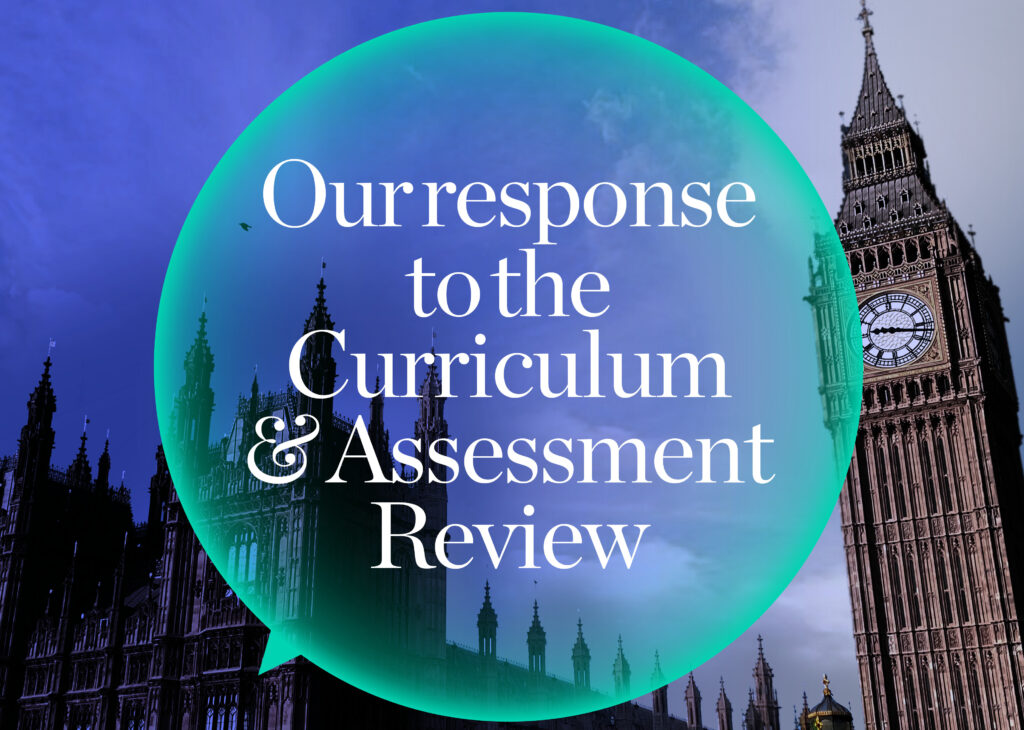
IRIS stands ready to support the education sector in translating these intentions into meaningful classroom practice. We will continue to work alongside teachers, researchers and policymakers to ensure that real research opportunities are not an optional extra, but an integral part of a modern, world-class education.
The Institute for Research in Schools (IRIS) welcomes the opportunity for change that the Curriculum and Assessment Review represents. This landmark review offers a strong foundation to start improving the chances of the next generation.
As a society, we face pressing challenges, from climate change and public health to artificial intelligence and energy security, which this generation of young people will need to help solve. The curriculum must equip them with not only strong foundations in knowledge and skills, but also the confidence, creativity and curiosity to contribute meaningfully to the world around them.
Our response to three key points
- 1. Triple Science
We welcome the effort to expand access and recognise the importance of scientific literacy for all. Making triple science an entitlement can open doors, but it must translate into genuine opportunity. The availability of triple science in a school is the bare minimum in terms of inclusion. Even where it is offered, uptake is not equally accessible to all. We must also address the reality that few students have chances to do practical science in class, with many only watching practicals as videos. Success should be measured by active efforts to increase participation among girls and under-represented groups, supported by investment in teacher capacity, lab resources and equitable access to meaningful practical science across all schools.
- 2. Data Science and AI
We strongly agree that data science involves essential skills that are currently not taught to most young people and welcome a post-16 qualification that will deliver this. The ability to critically interpret and understand data, alongside the responsible use of AI, is vital for all citizens, not just those pursuing related careers. While the review rightly calls for embedding digital skills and technologies across subjects, we should also seize the opportunity to integrate data science and AI concepts before age 16, so that every young person develops a foundation in these areas. If we don’t do this early enough, we risk repeating past mistakes, such as the low uptake of and gender disparity in GCSE Computer Science.
- 3. Enrichment
We strongly support the emphasis on enrichment. Opportunities to explore and extend learning beyond the traditional curriculum can build various forms of capital and transform lives. However, schools are already under immense pressure. Many enrichment opportunities depend on the goodwill and personal time of staff. Without additional resourcing and structural support, this aspiration risks adding further strain to an overstretched system and widening rather than narrowing gaps in access. We also believe that enrichment can be an opportunity to build upon and strengthen learning in core subjects.
Real progress will rely on sustained support
The Curriculum and Assessment Review is driven by a strong ethos of equity and inclusivity. For these reforms to science education to succeed, schools must be supported to deliver them within the curriculum, not through optional extras that entrench inequities. Real progress will rely on sustained support and training for teachers, as well as policies that strengthen teacher retention and recruitment, recognising that a vibrant and supported workforce is central to reform. It will also depend on investment in infrastructure that allows all young people, not only the fortunate few, to experience real, hands-on science and data-driven inquiry.
Research, innovation and the future economy
We feel there was a missed opportunity to more directly address and join up the wider national challenge around research, innovation and the future economy. The UK’s scientific and technological pipeline relies on nurturing young people who can think critically, solve problems creatively and contribute new knowledge. We have a huge untapped pool of potential in the UK. An innovative curriculum that embeds real-world research and innovation would play a powerful role in addressing this.
We recognise that this review positions itself as an evolution rather than a revolution, and we respect the deliberate approach taken in the current educational climate. Nonetheless, evidence from IRIS and our peers shows that when opportunities for real research are built into the curriculum, students are more engaged, more confident, and more likely to pursue STEM pathways, and teachers report higher motivation and job satisfaction. Student-led research, like our IRIS research projects, as part of the curriculum for all young people would be a cost-effective way to support skill development and critical thinking, link the classroom to careers and foster the next generation of scientists.
IRIS stands ready to support the education sector in translating these intentions into meaningful classroom practice. We will continue to work alongside teachers, researchers and policymakers to ensure that real research opportunities are not an optional extra, but an integral part of a modern, world-class education.
“We’re glad to see a willingness to rethink the curriculum; it’s overdue,” said Dr Jo Foster, Director of IRIS. “But to make this vision real, teachers need time, support and resources. Young people deserve a curriculum that reflects the world they will inherit and the possibilities they can create within it.”